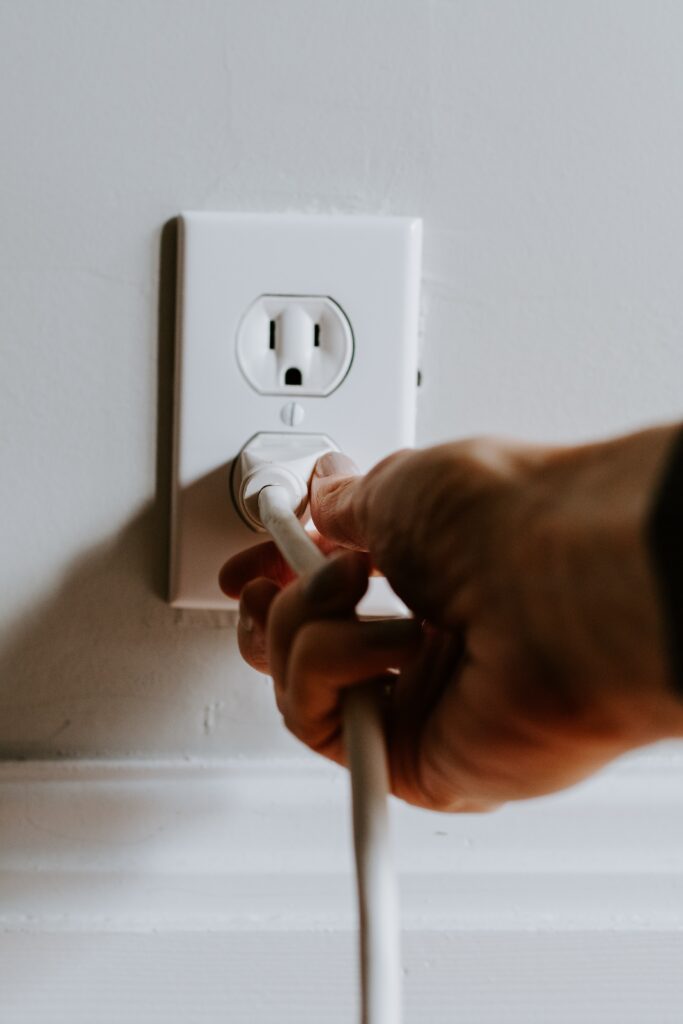solar generators have become increasingly popular as a reliable and eco-friendly power source, but one common concern that often arises is whether or not they are loud. In this article, we will ease your worries by addressing the question: “Are solar generators loud?” By breaking down the noise levels of different types of solar generators, we aim to provide you with a clear and friendly understanding of their potential impact on your peaceful surroundings. So, without further ado, let’s explore the world of solar generators and discover if they are truly as quiet as we hope them to be.
Understanding Solar Generators
What is a Solar Generator?
A solar generator is a device that converts sunlight into electricity for powering various appliances and devices. Unlike traditional generators that rely on fuel combustion to generate energy, solar generators harvest the energy from the sun through photovoltaic panels. These panels contain semiconductors that absorb sunlight and convert it into direct current (DC) electricity.
How does a Solar Generator work?
The solar generator consists of several key components, including solar panels, a charge controller, a battery bank, and an inverter. The solar panels capture sunlight and produce DC electricity, which is then sent to the charge controller. The charge controller regulates the charging process to ensure that the battery bank is not overcharged or undercharged. The battery bank stores the excess energy produced by the solar panels for use during periods of low sunlight or at night. The inverter converts the DC electricity stored in the battery bank into alternating current (AC) electricity, which is suitable for powering household appliances and electronics.
Common uses of Solar Generators
Solar generators have a wide range of applications and can be used in various situations. They are commonly used in off-grid living or camping, providing a reliable and sustainable source of power without the need for fuel. Solar generators can also serve as backup power during power outages, ensuring that essential devices and appliances can still be operated. Additionally, solar generators are utilized in remote locations where accessing traditional power sources may be challenging or expensive.
Comparing Solar Generators with Traditional Generators
Operational Differences
Solar generators operate silently, without the noise and vibrations produced by traditional generators. Unlike traditional generators that require fuel, solar generators rely solely on sunlight to generate electricity, making them a cleaner and more sustainable option. Traditional generators, on the other hand, require fuel such as gasoline or diesel to operate, emitting exhaust fumes and contributing to air pollution. Additionally, solar generators have lower maintenance needs compared to traditional generators, which often require frequent oil changes, filter replacements, and other maintenance tasks.
Energy Efficiency Comparison
Solar generators are highly energy-efficient, as they convert sunlight directly into electricity without any energy loss in the conversion process. Traditional generators, however, tend to be less energy-efficient due to the energy losses that occur during fuel combustion and mechanical operations. Solar generators can harness the maximum available sunlight and convert it into usable electricity, providing a more sustainable and efficient power source.
Maintenance Needs
Solar generators generally have low maintenance needs, as they have fewer moving parts compared to traditional generators. The absence of combustion engines and mechanical components in solar generators reduces the risk of breakdowns and the need for regular maintenance. On the other hand, traditional generators require frequent maintenance tasks such as oil changes, filter replacements, and spark plug inspections. This difference in maintenance needs contributes to the overall convenience and ease of use of solar generators.

Noise Levels in Solar Generators
Average Noise Level of Solar Generators
Solar generators are often considered silent because they produce minimal noise during operation. While traditional generators can generate noise levels ranging from 70 to 100 decibels (dB), comparable to the noise of a running lawnmower or a busy street, solar generators typically produce less than 60 dB of noise. The noise level of solar generators is comparable to the sound of a quiet conversation or background music.
Factors Impacting Noise Level
Several factors can impact the noise level of a solar generator. The type and brand of the inverter used in the solar generator can affect the overall noise output. Higher-quality inverters tend to have quieter operation. The size and design of the solar generator can also play a role in noise production. Smaller, portable solar generators may produce slightly more noise compared to larger, stationary models due to the limitations of their internal components. Additionally, the proximity of the solar generator to the user or surrounding structures can impact the perceived noise level.
Why are Solar Generators Considered Silent?
Lack of Moving Parts
Solar generators are considered silent due to their lack of moving parts. Unlike traditional generators that have internal combustion engines and mechanical components, solar generators rely on solid-state technology. The absence of moving parts eliminates the noise and vibrations typically associated with mechanical operations, resulting in a silent operation.
Energy Transformation Process
Solar generators convert sunlight into electricity through a clean and quiet energy transformation process. The energy harvested from the sun by the solar panels is converted directly into electricity without the need for any combustion or mechanical movements. The lack of energy transformation noise contributes to the silent operation of solar generators.
Use of Inverter Technology
Inverter technology plays a crucial role in the silent operation of solar generators. The inverter converts the stored DC electricity from the battery bank into the AC electricity required to power various devices and appliances. High-quality inverters are designed to minimize noise during the conversion process, resulting in a quieter operation overall. The use of advanced inverter technology in solar generators contributes to their silent reputation.

The Impact of Size on Solar Generator Noise
Correlation between Size and Noise
There is a correlation between the size of a solar generator and its noise level. Generally, smaller solar generators may produce slightly more noise compared to their larger counterparts. This correlation is primarily due to the limitations of smaller internal components, which may generate minimal additional noise during operation. However, the difference in noise levels between small and large solar generators is often negligible, and both sizes still offer relatively quiet operation.
Noise Level of Small vs. Large Solar Generators
Both small and large solar generators are designed to operate silently. Small solar generators, typically used for portable or on-the-go power needs, are equipped with compact components that generate minimal noise during operation. Large solar generators, on the other hand, are designed for stationary use and can accommodate larger, more efficient components that maintain quiet operation. The noise level of small and large solar generators falls within a similar range, considering their overall silent nature.
Effect of Solar Generator Positioning on Noise
Noise Level when positioned Outdoors
When positioned outdoors, solar generators generally produce minimal noise. The open environment allows any noise produced by the generator to disperse and attenuate, resulting in a quieter overall operation. However, the noise level can be influenced by factors such as wind and proximity to the user or other structures. It is important to note that solar generators still operate silently even when positioned outdoors, ensuring a peaceful and noise-free environment.
Noise Level when positioned Indoors
When positioned indoors, the noise level of a solar generator can further decrease due to the sound insulation provided by the walls and structures. The indoor environment absorbs and dampens any noise produced by the generator, resulting in an even quieter operation. This makes solar generators an excellent choice for powering devices and appliances indoors without generating any noticeable noise disturbance.

Effects of Solar Generator Noise on People and Environments
Effects on Human Health
Solar generator noise has minimal impact on human health. The low noise levels produced by solar generators are well below the threshold for causing hearing damage or other adverse health effects. Solar generators enable users to enjoy a peaceful and quiet environment while still having access to reliable and sustainable power. The absence of loud noise pollution contributes to improved mental well-being, reduced stress levels, and better overall living conditions.
Effect on Wildlife and Nature
Solar generators have a minimal impact on wildlife and nature due to their silent operation. Traditional generators, with their loud noise levels, can disrupt and disturb wildlife habitats, potentially causing stress and disturbances to animal behavior. In contrast, solar generators generate minimal noise, allowing wildlife to thrive undisturbed. Their silent nature ensures that the natural environment remains untouched and undisturbed by unnecessary noise pollution.
Silent Solar Generators vs. Noisy Traditional Generators
Significance of Noise Difference
The noise difference between silent solar generators and noisy traditional generators is significant. Traditional generators produce noise levels that can be disruptive and irritating, impacting the quality of living and the environment. The noise generated by traditional generators can cause stress, annoyance, and become a nuisance to both the generator operator and those in the vicinity. In contrast, silent solar generators provide a peaceful and noise-free operation, allowing for a more enjoyable and harmonious living environment.
Potential Benefits of Lesser Noise
The lesser noise produced by silent solar generators offers several benefits. It enables users to enjoy a quieter living space, promoting relaxation, and increased productivity. Silent solar generators are particularly advantageous in residential areas, as they do not cause noise disturbances to neighbors or surrounding communities. Additionally, the reduced noise levels contribute to a healthier and more sustainable environment by minimizing noise pollution and its associated impacts.
How to Minimize Noise from Solar Generators
Effective Positioning Strategies
To minimize noise from solar generators, effective positioning strategies can be employed. Placing the solar generator in an open area, away from walls or obstacles, allows for better sound dispersion and reduces the potential for noise reflection. Additionally, positioning the generator at a distance from the user or living area can further minimize any remaining noise. Careful consideration of the generator’s placement can significantly enhance the overall noise reduction.
Use of Sound Insulating Material
Another way to minimize noise from solar generators is by using sound insulating materials. Adding sound-absorbing materials, such as foam panels or insulation, around the generator can help to dampen any noise produced during operation. These materials absorb and reduce the sound waves, effectively decreasing the noise output. Sound-insulating materials can be particularly useful when the solar generator is positioned in confined spaces, such as indoors or within an equipment enclosure.
Advice for Quiet Operation
Practicing quiet operation techniques can also contribute to minimizing noise from solar generators. Keeping the generator well-maintained, including regular cleaning and inspection of components, ensures optimal performance and reduces the likelihood of any additional noise. Additionally, avoiding overloading the generator by not exceeding its power capacity can prevent excessive noise generation. Finally, monitoring the noise level and seeking professional assistance if any unusual or loud noise is detected can help maintain a consistently quiet operation.
The Future Prospects of Solar Generators
Technological Advancements and Noise Reduction
Technological advancements in solar generator design and components are expected to further reduce noise levels. Ongoing research and development focus on improving the efficiency and performance of solar panels, charge controllers, batteries, and inverters. These advancements will likely lead to quieter operation and enhanced noise reduction in future solar generators, making them even more appealing for various applications.
Increasing Use due to Silence Factor
The silence factor of solar generators contributes to their increasing adoption and use. As people become more conscious of noise pollution and its impact on well-being and the environment, the demand for silent power alternatives continues to grow. Solar generators, with their silent operation, offer an attractive solution for individuals, communities, and businesses seeking a reliable and sustainable power source without the associated noise disturbances.
Potential Areas of Improvement for Quieter Operations
While solar generators are already considered silent, there is still potential for further improvement in quieter operations. Continued research and development efforts aim to optimize the design of components, reduce the vibrations generated during operation, and enhance noise insulation within the generator units. The integration of advanced noise reduction technologies and materials can contribute to even quieter solar generator systems, providing users with an effortless and peaceful experience.
In conclusion, solar generators are a silent and environmentally-friendly alternative to traditional generators. They operate silently, thanks to their lack of moving parts, energy transformation process, and the use of advanced inverter technology. Solar generators produce minimal noise, making them suitable for various applications both indoors and outdoors. The reduced noise levels offer numerous benefits, including improved living conditions, reduced stress, and a healthier environment. By adopting effective positioning strategies, utilizing sound insulating materials, and practicing quiet operation techniques, users can further minimize any remaining noise. As technology continues to advance, solar generators are expected to become even quieter, ensuring a future of sustainable and silent power generation.




